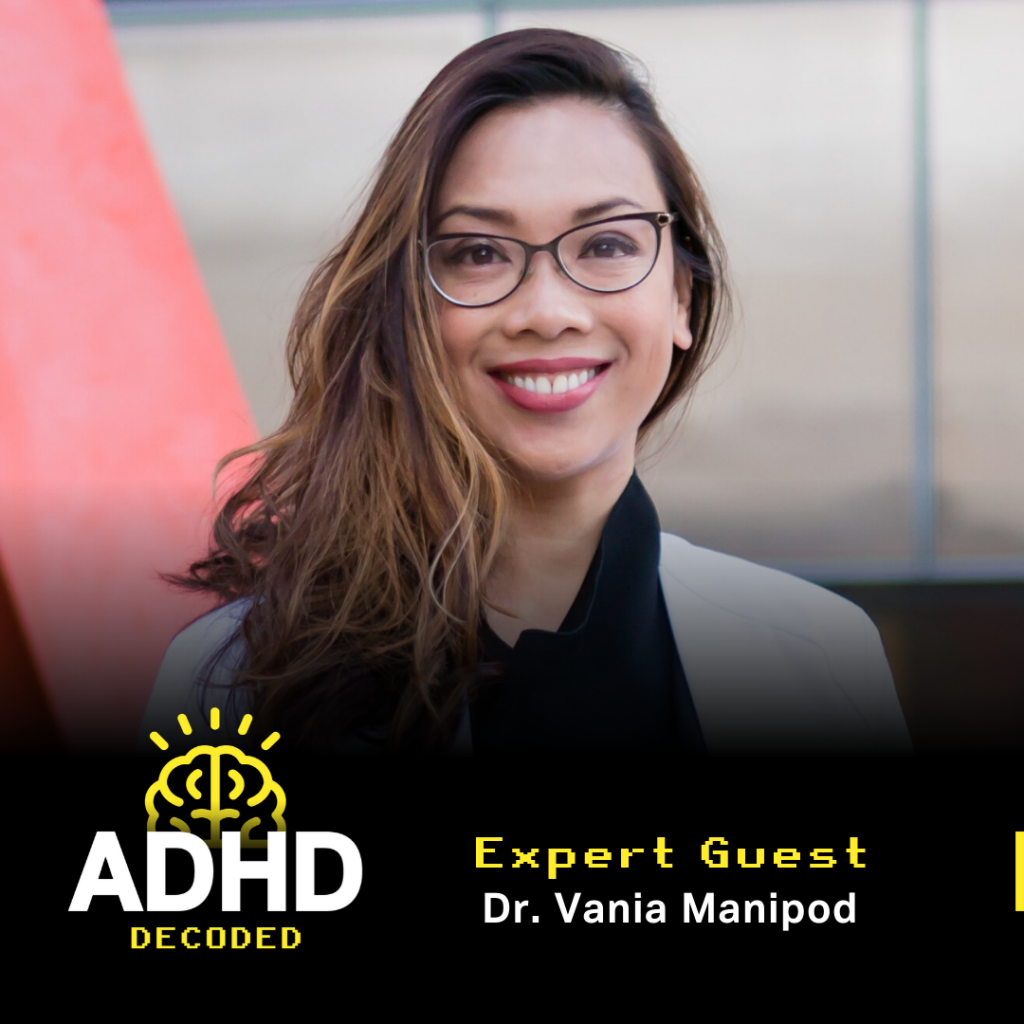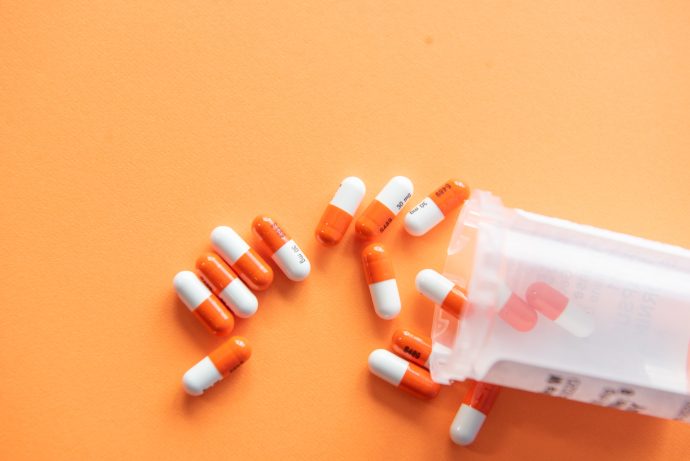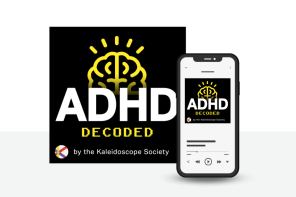Getting an accurate ADHD diagnosis, and creating a treatment plan that works for you can feel overwhelming to navigate.
To provide you with expert advice, we brought in Dr. Vania Manipod, a board-certified psychiatrist who believes in a holistic and integrative approach to psychiatry. In this episode of the ADHD Decoded Podcast Dr. Manipod covers what the diagnosis process looks like, and how to create an integrated treatment plan that works for you, which could include medication management, exercise, sleep, proper nutrition, and cognitive behavioral therapy – just to name a few!
Listen to the episode
Other ways to Listen:
Featured Expert: Dr Vania Manipod D.O.

Dr. Vania Manipod, D.O., is a board-certified psychiatrist practicing in Orange County, California. She believes in a holistic and integrative approach to psychiatry that incorporates psychotherapeutic techniques, diet, lifestyle, and medication management. She is also a writer, speaker, and featured medical expert in various publications and TV shows, and built a following on social media through her posts that educate about psychiatry, promote mental health, and share her own experiences being in therapy to break stigma via her Instagram @freudandfashion and blog freudandfashion.com.
Resources
Diagnosis: Think you may have ADHD? Learn more about diagnosis here.
Treatment: There are several methods of treating and managing ADHD, including but not limited to medication, exercise, sleep, proper nutrition, and cognitive behavioral therapy. Learn more about ADHD treatment options here
Therapy: Find an experienced and trained ADHD mental health professional here: CHADD Directory
or Psychology Today Provider Directory
Episode Transcript
Amanda:
Welcome to the ADHD Decoded podcast, your roadmap to understanding the ADHD brain. Here we offer you brain hacks to inspire and empower you to take charge of your life. Whether you are recently diagnosed, have been coping for years, think you might have ADHD or are wanting to learn more about the ADHD brain in general, then this podcast is for you. I am your host, Amanda Fischer, and this is brought to you by the Kaleidoscope Society.
Amanda:
In this episode, we are decoding ADHD diagnosis and treatment with our guest expert, Dr. Vania Manipod. She is a board-certified psychiatrist practicing in Orange County, California. She believes in a holistic and integrative approach to psychiatry that incorporates psychotherapeutic techniques, diet, lifestyle, and medication management. She’s also a writer, speaker and featured medical expert in various publications and TV shows. She uses social media to educate others and break stigma by sharing her own experiences being in therapy. Follow her on Instagram at @freudandfashion and learn more at www.freudandfashion.com. So without further ado, I’m so excited to introduce to you all the amazing Dr. Vania. Hi, Dr Vania. Thank you so much for joining us on this episode of ADHD Decoded.
Dr. Vania Manipod:
Hey Amanda, I am happy to be on here. Thank you for having me.
Amanda:
So let’s just dive right in. So Dr. Vania, how does one seek an ADHD diagnosis if they think they have it and what is the process like?
Dr. Vania Manipod:
Yes. So to seek the most accurate and appropriate diagnosis of ADHD would require seeing a trained and experienced mental health professional. So that could include a psychiatrist such as myself. I would do a structured evaluation, a comprehensive evaluation, and since I’m a medical doctor and psychiatrists are medical doctors, we would also consider, are there any medical conditions that could be contributing to these symptoms? And also making sure that perhaps some of these symptoms that might be ADHD aren’t attributed to other psychiatric disorders, like a mood disorder or anxiety disorder. So they could see a psychiatrist such as myself or a therapist. A therapist would do the same and have a comprehensive evaluation, and they would focus on psychological history and can make the diagnosis as well. Another alternative could be seeing a psychologist who could do psychological testing, and that would include a battery of tests that would assess for IQ, attention span, learning disabilities in addition to ruling out other conditions such as mood disorder, anxiety disorder, or personality disorders.
I usually tell people, like my patients, I’ll tell them the process could be as quick as one session or, because it does require a thorough history, it could take some time to establish ADHD as a primary diagnosis.
Amanda:
So how do you know if you have ADHD?
Dr. Vania Manipod:
So symptoms of ADHD can cause impairments in numerous aspects of life. For example, the distractability, the procrastination, the poor time management and impulsivity could affect school life, someone’s professional life at work. They might be on probation or getting written up for not completing tasks on time. It can affect their home life, their social life and relationships, and ultimately their quality of life because ADHD, the symptoms, can really cause someone to struggle with their functioning in typical day-to-day tasks.
Amanda:
So do you think that ADHD is over-diagnosed?
Dr. Vania Manipod:
Okay. This is controversial to some degree because ADHD in itself amongst most psychiatric diagnoses is still pretty controversial because people have varying opinions on it. But I would have to lean towards yes, I do believe it is over-diagnosed and wanted to go over two general reasons why. So number one is that even though I mentioned early on that to get the most appropriate diagnosis, someone should see a trained and experienced mental health professional, but the truth is that actually any mental health professional or medical professionals, such as a pediatrician or a family doctor or even an emergency medicine physician, could diagnose somebody with ADHD and give someone a prescription. So not every medical professional or a mental health professional has the same level of experience with ADHD. So someone could get the diagnosis of ADHD, but it doesn’t mean it’s an appropriate diagnosis, if that makes sense.
Amanda:
That makes a lot of sense. I think the first person to diagnose me was my pediatrician. Like you were saying, I mean, I think it was perfect because I definitely have it. And then I confirmed it by going to see other mental health professionals that actually specialize in ADHD thereafter, which is pretty common. I think a lot of people are now seeking out second or third or even fourth opinions from other professionals just to really make sure that they have it. But it’s just I feel like it should become simplified in some way.
Dr. Vania Manipod:
Yeah, definitely. I mentioned the emergency medicine physician as an example, because that actually happened one time where I had a new patient who said, “Oh, I went to the ER and they said I have ADHD, so that’s why I’m here.” And I thought, “Oh, wow.” [crosstalk 00:06:19]
Amanda:
Oh my gosh, I’ve never heard of that happen before.
Dr. Vania Manipod:
Yeah. There might be a variety of reasons how they got that diagnosis. Maybe the ER was full or something like that and they didn’t have time and just didn’t know how to help this student. But that just goes to show that now it’s on their record as having ADHD. I think it’s good that they sought me out to get a second opinion. But yeah, to go along with what you said, I do recommend people get a second or third opinion or even seek out psychological testing. The more comprehensive, the better.
Amanda:
I had someone else in my life who, not my parents, but an elder person in my life was like, “Amanda, I really think you should get some ADHD testing done.” This person said it in a very loving way. She’s a very loving person and cares about me very much. She could tell I was struggling with certain things in my life and she’s like, “These are red flags that you might have ADHD.” I don’t think my mom really knew what exactly to do so she just took me to my pediatrician and he diagnosed it. So anyway, it’s a lot more helpful and more efficient when you can get that second opinion from an actual doctor or therapist who specializes with ADHD.
Dr. Vania Manipod:
Yes, definitely. To add to that really quickly also, I wanted to say one of the reasons why I do think ADHD is over-diagnosed is because I think more people are seeking the diagnosis, which is good and bad. But when you think about it, our culture and our society, we live in a very overworked society and also a very technologically overloaded and overstimulated society. So I will often get people who are pursuing the diagnosis because their employer’s just giving these unrealistic number of tasks and responsibilities and they’re desperate and just want help. They hope that it’s maybe because of ADHD. In addition to that, stimulants are unfortunately abused and have addictive potential. So I do see often that some people may seek the diagnosis in order to obtain a prescription.
Amanda:
Yeah, definitely. Dr. Vania, there are a lot of myths and negative messages surrounding ADHD diagnosis. What are some things that you want to clear up regarding these things?
Dr. Vania Manipod:
Number one, I would say is a myth that people with ADHD are lazy. I just want to clarify, people with ADHD are not lazy. They truly want to do things and succeed in life, but the symptoms of ADHD cause impairments in ability to just get up and initiate a task or to complete a task and follow through. So even simple tasks, and I always use an example. Something as simple for people could be sending a reply to an email or even checking the mail, right? But for someone with ADHD that could take a lot of sustained attention and mental effort. So it’s even little, simple things that people consider so mundane, people with ADHD struggle with and in turn that causes them to struggle with self-esteem and overall feelings of failure. So I just want people to understand that people with ADHD truly want to succeed, but they struggle to take that first step.
Amanda:
Can you talk a bit about gender and racial bias with diagnosis? What should people be aware of?
Dr. Vania Manipod:
Yeah, so that also leads to another myth when it comes to gender, but one myth is that girls don’t get ADHD. There’s obviously a bias with that because girls in general, they’re not as hyperactive and they don’t have as many behavioral issues as young boys do. So they’re typically not the ones loud in class or moving around and super restless in the classroom and getting yelled at by their teacher. So as a result of that, they’re less likely to be referred for an evaluation. So that would lead to them getting diagnosed and getting proper treatment later in life usually, whereas boys might get access to treatment and addressing the symptoms early on.
Amanda:
So ADHD exists in other cultures too, right? It’s not just an American thing, right?
Dr. Vania Manipod:
Right. But when it comes to the racial bias, when it comes to diagnosing racial minorities, it’s known that they are less likely to be diagnosed with ADHD. A lot of it is cultural, but specifically with black children, it’s known that they’re more likely to be diagnosed with conduct disorder than ADHD or adjustment disorder instead of ADHD. That could be problematic because when we think about conduct disorder, that’s a disorder in which kid may exhibit hostile and aggressive behaviors. ADHD is actually, having that as an underlying issue, is a totally, completely different way of treatment and addressing it. So that’s important to know because if they get a different diagnosis other than ADHD, they’re less likely to get the treatment they need and they won’t get stimulant medication or resources.
Amanda:
So perhaps maybe in the situation that you just brought up, the person may have an adjustment disorder, but really at the root of it, it’s contributing to them possibly needing an adjustment. Is that right?
Dr. Vania Manipod:
Yeah. People with adjustment disorder… So adjustment disorder is temporary. So perhaps it’s like, for example, someone in high school who’s transitioning to college. That’s a major life adjustment. So they might be struggling in school as a result of that adjustment and maybe having anxiety and mood changes and concentrations related to that. But that’s not ADHD. That’s assuming that it’s a temporary condition that will improve just with time and getting adjusted to a new environment. But people with ADHD, this is chronic and it’s not just because they moved away to college. This is something that they’ve struggled with long term. So getting a diagnosis of adjustment disorder would really be minimizing the struggles of this student.
Amanda:
So another question I have, Dr. Vania, is let’s say someone gets diagnosed with ADHD. What’s next for that person?
Dr. Vania Manipod:
So next would be a discussion of variety of treatment options. Ideally it would be one that’s pretty integrated and addresses numerous aspects. Medications would be one. Non-medication approaches like therapy or maybe an ADHD coach in addition to diet and lifestyle changes and also maybe some self-help type resources.
Amanda:
Okay. Can you talk a little bit more about creating an integrated treatment plan that works for an individual?
Dr. Vania Manipod:
Yeah. So the first line of treatment is medications. So specifically stimulant medications like methylphenidate, which is the generic for Ritalin or dextroamphetamine, which is the generic for the Adderall family. So that’s usually the first line and the most studied to be the most helpful at getting symptoms under control. But it’s not just medications. Medications might help the symptoms feel more manageable, but then a lot of it is also doing non-medication approaches and addressing things that we can control. So for example, having a planner. Keeping a planner where we organize our schedule and give ourselves structure. That could also include lifestyle changes like diet because there specific foods that can worsen ADHD symptoms, and also knowing that exercise can reduce the severity of ADHD symptoms and also emphasizing the importance of sleep. So it’s pretty comprehensive because there’s a variety of ways that people can address their ADHD and have more control over their symptoms.
Amanda:
So one question that comes up for me is, I’m thinking some of our listeners probably are apprehensive to going on medication for the ADHD and perhaps want to use something more natural. So what are some options for those kinds of people?
Dr. Vania Manipod:
Typically when people don’t want to go the stimulant route, I always talk to them about non-stimulant medications like atomoxetine, which is the generic for Strattera or buproprion, which is the generic for Wellbutrin. Those are non-stimulant medications. But when it comes to maybe more natural approaches, I know people usually come in asking about… I’m trying to think of some supplements that maybe they’ll find. I don’t want to list them because it’s hard for me to recommend them since a lot of what I recommend is usually evidence-based, but sometimes they’ll come in asking about something that they saw on TV, or maybe that’s something that they saw in the store. Usually what I’ll do is all ask them what it is and look at the label and we’ll go over the different research that support use of that specific supplement. So I’m open to it because oftentimes that’s the first step for a lot of people, is they want to see if they can manage their symptoms without going the stimulant route right away.
Amanda:
Yeah. That happens a lot. Just within the circle of people who I’ve talked to who have ADHD, a lot of them are like, “Whoa, medications. I want to to stay far away from those. I’m not that crazy. I don’t need meds.” But I personally find comfort and I was reading this book and the author, I forget who it was, but they said that medication is just the cornerstone of treatment, and then there’s a lot of therapy that needs to be sat out in conjunction with the medication. I feel like a lot of times people will just be like, “Oh, I have meds. I’m good. My ADHD is maintained. I’m fine.” But really where the progress happens and miracles happen is in therapy. So could you just talk about, a little bit, I know you do a lot in social media about going to therapy and trying to smash the stigma behind going to therapy, so can you just touch a little bit more on that?
Dr. Vania Manipod:
Yeah. So psychotherapy that would address ADHD, cognitive behavioral therapy has been the most supported by research. I’ve done this with some of my patients before too, but a lot of it includes providing some structure and routine. So having their planner and bringing a planner with them every day of treatment is usually part of it, but also addressing some of the cognitive distortions that people get from having ADHD. So that could be an automatic thought when someone’s faced with having to do a responsibility is that, “Oh, this is too hard for me.” Right? “This is going to take too much time.” Or it’s just these automatic negative assumptions or, “I don’t want to do this because I’m going to fail.” That’s usually result of this negative, poor self-esteem and these feelings of failure that just build up over time. So a lot of it is helping them recognize, “Look, there are things that we can do to be proactive and recognize that these are our automatic thoughts, but if we change our thoughts that we do have more control and can take action to address it.”
So that does take a lot of work. It’s so much easier to focus on our negative thoughts, right, than it is to change our perspective to something that’s more positive and reframe it to the idea that, “Yes, we can do these things. Yes, we could be proactive and prioritize our sleep or write in our planner and maintain a structured schedule.” So it does take a lot of encouragement, which is why I recommend people see a psychotherapist to help guide them to do these things.
Amanda:
Yeah, absolutely. For all of our listeners out there who may be saying to themselves, “I don’t need a psychotherapist. I’m fine. I can do this all on my own. I’m going to pick myself up by my bootstraps and I’m just going to do me.” I just want to say that that’s a very American mentality. Not that it’s the most terrible thing in the world, but as your friend, I just want to let you all know, it’s just so much more fruit can be born when you have a professional like Dr. Vania to be there to really help you become a champion over your life and your ADHD. Okay.
So, Dr. Vania, one of the things you mentioned a little bit ago is about nutrition. What would you say are some ADHD-friendly foods and what are not ADHA-friendly foods? Because for example, I have a friend and her mom got so mad at her one morning because when she woke up, she didn’t really have a breakfast ready for her and her siblings. So she just went for the candy bar. She went for the candy bars in their closet and she had eight of them. This friend of mine has ADHD and is getting treated for it. But I think that’s pretty common. Us ADHD-ers we’ll seek out those sugary foods so that they can boost our dopamine levels. So can you talk about some ADHD-friendly foods and then some not so ADHD-friendly foods?
Dr. Vania Manipod:
Yeah. I will start by saying that eight candy bars definitely is not ADHD-friendly, but I can understand why someone with ADHD would turn to that because it’s easy, right? It’s right there. It’s easily accessible. It doesn’t take much effort. But typically ADHD-friendly foods would involve starting off your day with a lean protein such as eggs, not something that’s sugary or processed for sure, because that can definitely impact cognition and people with ADHD tend to struggle with cognition. In addition to that, I recommend that people drink a good amount of water throughout the day because a big portion of our brain is water, mostly. So if we’re dehydrated, our brains are not functioning optimally.
So making sure that you drink plenty of water throughout the day is necessary. In addition to that, leafy greens like spinach or kale. I know that it sounds like, “Okay, eat a lot of vegetables,” but it’s truly important. You are what you eat. So, vegetables. Maybe fruits that don’t have as much sugar, so berries like strawberries and blueberries. Really the goal is to avoid processed food, avoid dense carbs, and sugary foods, because that can really impact cognitive symptoms, which is what ADHD tends to impair.
Amanda:
That can be so hard sometimes because I’m such a lover of pancakes in the morning. I always look forward to my pancakes on the weekend or something. And-
Dr. Vania Manipod:
How do you feel after the pancakes?
Amanda:
Oh, I don’t feel like I’m ready to go for the day because I definitely need that lean protein. Yeah. I feel just bleh afterwards. So, okay, next question. Are there accessible and affordable treatment options?
Dr. Vania Manipod:
Yeah. So usually when I recommend someone see a mental health professional, because typically when I see someone with ADHD, a lot of them are motivated to see a counselor or therapist. So I always go through with them to contact their insurance, to make sure we find them a provider who accepts their insurance because there are a lot who do. Doesn’t necessarily mean that they specialize in ADHD, but mental health professionals are trained in ADHD and sometimes ADHD specialists are hard to come by. So definitely looking into your insurance. A lot of people are in colleges or universities, so I always recommend that they seek out support from the Office of Disability Support because usually each school has one and that could lead to resources that they might have, tutoring or even getting accommodations. So that would be provided by someone’s school.
In addition to that, I know that there are some online resources like the CHADD website. So C-H-A-D-D. That stands for the Children and Adults with ADD. They have a lot of options on there, too, some online support groups and also links to coaching and some mental health centers or ADHD centers, also. I know that for some people, if they’re looking for a therapist who specifically specializes in ADHD, sometimes that’s not covered by insurance. So I know ADHD coaching is really a growing profession and it could be more affordable than seeing a psychotherapist.
Amanda:
Yes. I just want to touch on to the point you made about going to the disability services at a college, or definitely utilizing that in high schools and middle schools and elementary schools as well. But considering that I just graduated from college with honors, by the way, not bragging-
Dr. Vania Manipod:
Congrats.
Amanda:
… but that was only possible because I would always never pass up any of the accommodations that my school offered me. I was really lucky to go to a small school where I wouldn’t get lost in the numbers, but even no matter what school you go to, you just have to advocate for yourself and seek out that support because it’s really just an invaluable resource and you’re not going to regret it. So definitely utilize that, to all of my college people out there. ADHD coaching, I know it’s really booming all of a sudden as a field.
Amanda:
There are so many wonderful ADHD coaches out there. We’ll try to link the CHADD, the C-H-A-D-D website that Dr. Vania through out there, so we’ll link that in our show notes. One last question for you, Dr. Vania. How do you disclose your diagnosis in the workplace and to family and friends? We ask this because one of our listeners, he just applied to med school and he wasn’t sure if he should put on his application if he has ADHD or not. So when do you think it’s appropriate to disclose that kind of thing to your workplace or med school or what have you?
Dr. Vania Manipod:
Yeah, so let me touch on the workplace first, because that could be pretty tricky. So when it comes to the workplace and deciding whether or not to disclose, I’d say that your default answers should be to not disclose, unless number one, if you’re struggling and not completing your work and tasks and all your responsibilities and you might need accommodations, then sometimes there isn’t really a way around it, unless you disclose your diagnosis and get those accommodations. Because you usually need a doctor’s note or something, and usually the diagnosis might be on there. So that would be one situation where you might consider doing so. Number two, maybe it would be okay to do so if your employer or your supervisors are super supportive. So I’ve had patients where they’ll have a boss who also has ADHD or knows what it’s like to struggle with ADHD.
I’ve seen them be so supportive to the point that they would suggest my patient gets evaluated or gets the diagnosis because they want them to succeed. So that’s usually a sign of a supportive employer or supervisor is if they understand what it’s like to live with ADHD, because unfortunately ADHD is not understood by a lot of people. So that’s where it could be tricky whether or not you disclose it because some may go to that myth and say, “Oh, it’s an excuse for laziness,” or, “You’re just trying to find a reason for your lack of ability to complete responsibilities.” So definitely you need to know whether or not you’re going to get support from your employer before you disclose.
And then when it comes to medical school, let me just address that specifically. I would say that if someone truly believes that disclosing their ADHD diagnosis is going to support and reinforce why someone is going into a specific field, so for example, maybe they’ve had positive experiences with doctors or therapists in getting support and treatment, and they want to convey that that is truly a reason why they want to go into medicine. Then I would say go for it because it sounds like something they’re passionate about and something that’s extremely important to them, but only if they feel confident that they can handle whatever response they may get from the admissions committee, right? So if they’re not accepted, will they be okay knowing that they gave their all into their application and disclosing that they had ADHD is truly something that they wanted to do and believed in? So that would be for the school situation.
Now when it comes to disclosing to family and friends, I usually tell people to start with… Because obviously this decision is something that someone put a lot of thought into, right, if they’re even contemplating disclosing. So I usually tell people to, number one, start with your true allies who you know will understand and support you no matter what, because that’s always a good start. Nobody wants to start by telling someone for the first time and then they’re unsupported, or they’re told things like, “Oh, it’s an excuse for laziness,” or, “That’s not what you have,” or, “I never thought you would have that.” You’ll get a variety of responses that just makes you feel worse. So start with your true allies.
Amanda:
Yeah. That’s really good advice. I think I’m going to take it a little step further. When do you disclose it to someone that you’re dating? When do you think would be a good time to do that?
Dr. Vania Manipod:
Not the first date, that’s for sure. Unless that person also… See that goes along with it, right? So if you feel like someone has a deep understanding of what it’s like to live with ADHD, and you get that on your first date even, or within the first few dates and you feel like it would open yourself up more to this person and contribute to the connection that you have, then I would say trust your gut and go for it yet, yet also be cautious that you may not get the response that you want, right? So it’s like if it feels right to you, do it, but also be cautious and prepared in case you don’t get the response that you want from them. I could see though, where some people are like, because ADHD impacts so many aspects of someone’s life, that they just want to be open about it.
Like if they don’t return your text message right away, and you’re starting to date somebody and they’re like, “Why don’t you text me?” And it’s like, “Oh, I have ADHD.” You want them to understand, but sometimes you want to wait until you know that it’s something that they’ll accept no matter what.
Amanda:
Yeah. Have them fall in love with you first, and then-
Dr. Vania Manipod:
Here you go. There you go.
Amanda:
Well, wonderful. Thank you so much, Dr. Vania. Is there anything else you feel like you should convey to our listeners?
Dr. Vania Manipod:
I would have to say that when it comes to ADHD, I want people to know that there’s hope in being able to find treatment, find support. Oftentimes people really struggle with self-esteem and feelings of failure and a sense of hopelessness that they can’t succeed. But obviously by listening to this podcast, you either are concerned that you might have ADHD or maybe you have ADHD or you know someone who has ADHD. I just want to convey that it’s possible to get support and treatment in order to succeed.
Amanda:
Well, awesome. Thank you so much, Dr. Vania, for your time and your expertise and for sharing all of it with our listeners. We couldn’t thank you enough. So thank you so much.
To recap this episode, we want to make sure you got the three main takeaways. Number one. ADHD-ers are not lazy. It’s a chronic condition that seeps into our everyday lives. We generally have a hard time with things like paying attention, prioritizing and executing tasks, getting started, sustaining effort, managing emotions, and keeping several things in mind at once. Now this isn’t to say that we don’t get lazy from time to time just like anybody else, but what may be perceived as laziness to others, typically isn’t laziness at all. Rather, it is really a problem with the chemical dynamics in our brain. It’s not under our voluntary control, and for 80 to 90% of people with ADHD, medication can significantly improve these problems. Which leads us into our next point.
Takeaway number two. If you think you have ADHD, see a trained and experienced mental health professional, preferably someone who has background in working with ADHD, such as a therapist, psychiatrist or psychologist. Need help finding one? Check out our links in our show notes. Takeaway number three. Your integrative treatment plan should look a little something like this. Therapy with a mental health professional. Medication, if you so choose or a different alternative. Daily exercise. Starting your day off with eggs or lean protein. Drinking plenty of water. Eating your greens and fruits and vegetables. Getting an adequate amount of sleep every night. If you’re in a school setting, definitely utilize your school’s disability services. Seek out or start an ADHD support group in your area. Get an ADHD coach. These are just some of the many things that you can do to manage your ADHD better. I know it can be overwhelming, so start with one thing. What’s your one thing going to be?
Thank you for tuning into ADHD Decoded, a podcast by the Kaleidoscope Society. This is your host, Amanda Fischer.




